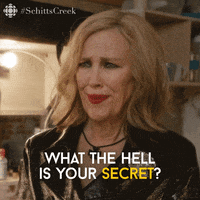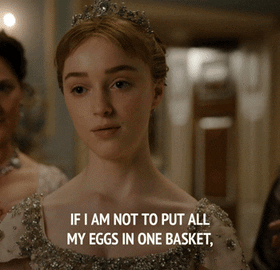Hi, I’m Kate. Ask an Author is a reader-supported newsletter providing advice and support for authors at all stages of writing, publishing, and hand-wringing. If you know someone this applies to, you can forward them this email and encourage them to sign up. Have a question? Fill out this form and I’ll answer it in a future response.
News!
My debut novel Greenwich will be out in July! Adrienne Brodeur called it “A stunning debut…Fast-paced, beautifully written, vividly peopled… impossible to put down.” Greenwich is one of Publisher’s Weekly’s “buzz books” for summer 2025, and on Zibby Owens’s list of most anticipated new releases this year. Hit that preorder button!
“Care and Feeding” is out in The Rumpus
“Good Dead Girls” is out in No Tokens
And two more pieces are forthcoming — a short story in The Booklyn Review, and an essay in The Bellevue Literary Review.
Hi Kate,
I know there’s no real answer to this, but how do you keep writing when it just doesn’t feel like it’s leading anywhere (agent, book deal, reviews, sales, whatever). I’m completely alone in this pursuit and some days I don’t even know why I bother.
- Writing Solo
Dear Writing Solo,
This is THE most relatable problem and I promise that plenty of people reading your question are right now nodding (or crying) along. I can’t think of a single writer I know who hasn’t felt this way. Even the authors who seem from the outside like they’re crushing it and always have been. Everyone has had to deal with stretches of time — sometimes very, very, very long ones — where it seems as though nothing is happening and isn’t ever going to happen, and there’s no indication that any of that is ever going to change.
Want to hear the secret of the universe and the key to absolutely everything?
(Yes.)
Anything that changes only changes because the writer kept writing.
That’s it.
That’s the difference between the people who finish a book and the ones who don’t, or the people who get an agent and the ones who don’t, or the people who get a book deal and the ones who don’t. If you give up, then you’re guaranteeing that nothing will happen. The only way to have any chance of getting the thing you want is to not stop trying for it. You can’t control which book will be the one that gets the agent/publisher/sales figures/prize/etc., or when any of this will possibly happen. And you can’t hinge all your hopes and dreams or sense of yourself and self worth on factors that are completely outside your control.
But if you don’t write it in the first place, then you already have your answer right there.
Since we’re all being vulnerable in this post: Greenwich was my third novel to go on submission, and I was on my third agent. By the time we sent that manuscript out to editors, I had fully convinced myself that nothing was going to happen. I couldn’t even let myself hope anymore. I channeled those feelings into writing a new book that was all about, basically, deciding whether I even wanted to keep writing anymore (the irony of this is not lost on me) and in that time… Greenwich sold and everything changed and all I could think was that it was a damn good thing that I’d kept writing, even though for a long time (years) it felt like I was just going to keep writing books that never got read.
I know that sounds cheesy and like I can only say this with the benefit of hindsight, but it’s something I continue to be grateful for every day. That I kept writing, that I kept trying new books, that I kept having new material to send out, that even when I just wanted a crystal ball to tell me it would be worth it and I should keep going, that I decided it would be worth it and I should keep going. I think at a certain point I literally didn’t know how to live a different way — I didn’t know how to live with myself if I gave up on this.
If not writing feels like it would be a relief, because you wouldn’t have to deal with this stress and loneliness and uncertainty all the time, you have full permission to take a break, for a little while or a long while or forever. You don’t have to keep doing something just because you’ve already spent a long time on it (sunk cost fallacy), and sometimes I feel like people forget that this is a choice and it’s okay to hit pause. It’s okay to stop. It’s okay to not torture yourself with something you no longer enjoy.
But! I also feel like most people write because they love it, and they want it, and the thought of stopping can be a really good kick in the pants — a way to remember that wait a second, I want to be doing this. I want to do it even when it’s hard, even when it seems like it’s going nowhere, even when nobody cares what I’m writing but me.
I’m pretty sure you aren’t writing for the fame, or the glory, or the sweet sweet cash money. (Or at least I hope you aren’t, because that reality is going to be harsh.) Writing is something we love to do, we want to do, we need to do, because life feels incomplete without it. If you get an agent, sure, it’s validation — but also the relationship might not work out, your manuscript might not sell, it might sell but then any number of things might still go belly-up. There are so, so, so many hard points along the way, and I say that not to be a downer but to say that in all of those steps, you have to be able to come back to your own internal heartbeat and hold onto your why.
Why do you write? Is it just for someone else to tell you what a good job you did? Or is there something inside you that wouldn’t have it any other way? No matter what stage of writing and publishing you’re in, you’re going to have to be able to find your own joy and your own reasons for doing this, that have nothing to do with what other people think. There will always be something more that you don’t have yet. You will always need the writing itself, just you and the words, to come back to.
Do you have a writing group? Critique partners? Other writers online or in person to commiserate with? Can you take a class or a workshop that would connect you to other like-minded writers and introduce some other ways of approaching your work? Writing is solo, yes, but it doesn’t have to feel lonely all time. It can help to try to cultivate some relationships with other people who get it, just to know that you aren’t the only one in this position. It can also help to change up some of your writing routines, if you’re feeling in a rut.
If you’ve been working on the same project for a long time and are stuck, maybe it’s time to take everything you’ve learned from this work and use it to start something new. If you’ve been working on a bunch of different things and are spinning your wheels, maybe it’s time to commit to one project and see it through to the finish line. If you’ve been deep in the zone, maybe it’s a good time to put the pages away for a little while and let your brain rest and recover. If you’re been giving your work a longer break than you’d meant to, maybe it’s time to come back to the page with an open mind and see what you discover.
Personally, I need to sneak up on my writing. If the stakes feel too high — I MUST WRITE THIS PERFECTLY SO IT CAN BE MY GREATEST ACHIEVEMENT OR ELSE I AM A FAILURE FOR LIFE— then it’s too. much. pressure. I have to find my way, again, back to my why. I have to reconnect with the joy of it — the playfulness, creativity, inventiveness, and intellectual stimulation that I find so thrilling and satisfying. I have to remember that there’s something meaningful I want to say, that matters to me to get down in writing whether anyone reads it or not.
Sometimes I think about other artists and art forms, like painters, composers, and musicians, and imagine their frustrations at not getting galleries or sales or air time or whatever. It seems so obvious to me that they should keep doing their craft, whether they’re #1 on Spotify or no one knows their name. It seems obvious to me that there’s value in making music that doesn’t get swept up in a huge record deal, or in making art that causes people in a gallery to frown and say, “What the hell is that?” There’s value in doing things that aren’t immediate hits, or that take a longer to find their audiences. Can you talk to yourself like you’d talk to another artist whose work is worth doing? Not “why bother” but “keep going,” both because you never know what’s going to happen, and because it’s worth doing even if nothing “happens” at all.
Some more reading that might be useful:
On sticking with long writing projects, when the going gets tough:
"It's a marathon, not a sprint"
As a writer, how do I cultivate patience? I know they say it’s a marathon not a sprint, but I’m not a long-distance runner at all.
- Wrong Temperament for Marathons
On coping with rejection, and sending your work out enough:
On rejection
I’m sharing all this because while, like the novelist on the boat, I too loathe talking about my rejections, I think the quietness with which we often weather our no’s means people can get the wrong idea about how many attempts it can take before that elusive yes comes along.
I wrote this one before Greenwich had sold, and now I stand by it even more — keep writing, and keep sending out your work!
Kate






